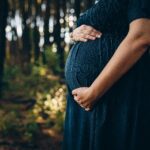We sought to gain an understanding of refugee women’s experiences through an interpretative phenomenological methodology. Challenging the lack of research on group-based informal supports for refugee women, we examined the role of playgroup in contributing to social support, the effects of playgroup across all ecological systems, and mothers’ experiences of perinatal mental health issues (PMHI). A focus group and follow-up interviews with the women, staff, and stakeholders gave the opportunity to share their narratives. These information-rich descriptions of their experience helped us explore complex and multifaceted concepts, including PMHI and social support, to show how refugee women ascribe meanings to PMHI within a facilitated playgroup context. In applying Bronfenbrenner’s Ecological Systems Theory (BEST), we found that the women’s microsystems were lost in re-settlement, and they experienced feelings of shame and stigma around PMHI through macrosystem influences. Playgroup became a supportive mesosystem, where the women came together through shared understanding and were able to build new microsystems. Our research will assist in advocating for playgroups and other informal support programs by examining in detail how they can provide valuable insight for other refugee women experiencing PMHI in similar circumstances.
Primary substance use prevention programs for children and youth: A systematic review
An updated synthesis of research on substance abuse prevention programs can promote enhanced uptake of programs with proven effectiveness, particularly when paired with information relevant to practitioners and policy makers.To assess the strength of the scientific evidence for psychoactive substance abuse prevention programs for school-aged children and youth.A systematic review was conducted of studies published…

